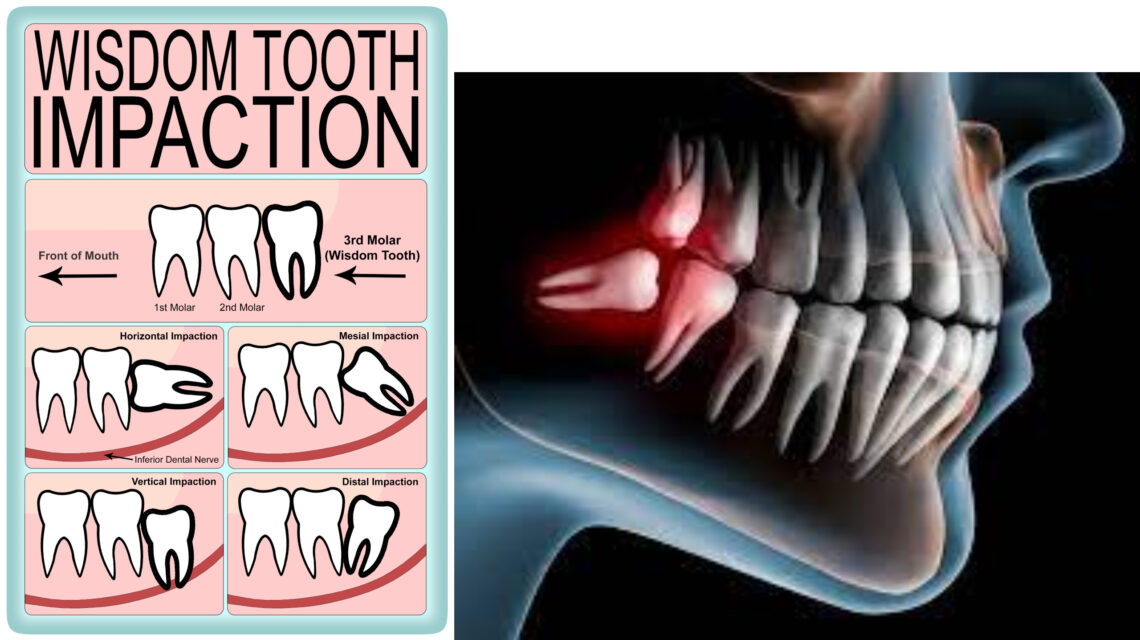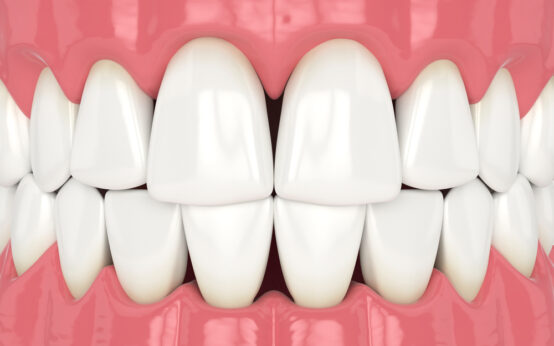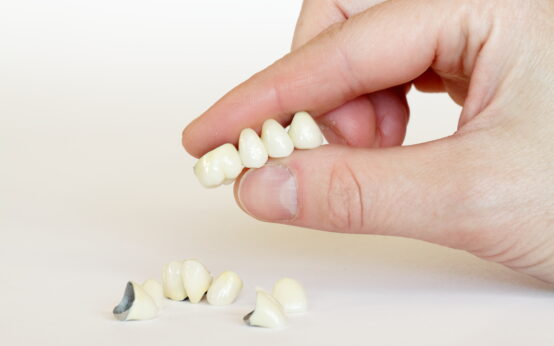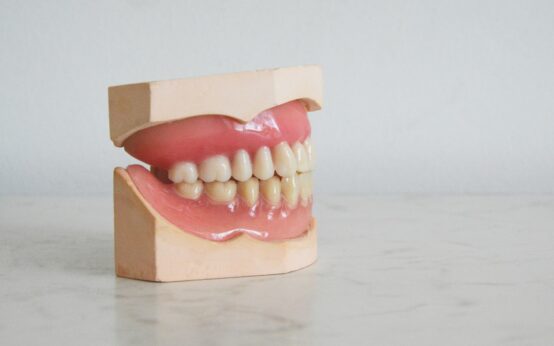If you've been experiencing pain from impacted wisdom teeth, then you may need to seek a dental consultation for wisdom teeth extraction. A dental consultation is not only important to determine the cause of pain, but it also helps you build trust with your dentist. Although wisdom teeth removal is a straightforward procedure, it can be nerve-wracking for many people, so your dentist will explain the procedure and answer any questions you may have. You can rest assured that you're in good hands with the right professional.
Table of Contents
Symptoms of impacted wisdom teeth
People with impacted wisdom teeth typically experience pain when chewing food or drinking cold beverages. They may also find it difficult to eat their favorite foods. Pain is usually felt in the back of the mouth, and can radiate to other parts of the face. It may also be associated with swelling and tender gums. If you have experienced any of these symptoms, it's time to schedule an appointment with a dentist.
Some people aren't aware they have impacted wisdom teeth. However, for others, the problem is immediately apparent. Luckily, impacted wisdom teeth can be easily diagnosed and treated. You will likely need to undergo an x-ray to make sure that they are not infected with bacteria. If your dentist suspects that you have impacted wisdom teeth, they will recommend a treatment plan. To determine whether your teeth are impacted, you should schedule an appointment with a dentist.
Swelling, pain, and bleeding gums are common symptoms of impacted wisdom teeth. Symptoms of gum infection may include pus formation or a cyst in the jaw. Pain in the impacted area can be localized or may extend into the rest of the head or neck. The condition can lead to infection and damage to nerves in the jaw. You should visit your dentist as soon as possible if you are experiencing any of these symptoms.
Surgical procedure
A surgical procedure for the removal of wisdom teeth may be necessary if you have trouble with your wisdom teeth. Your wisdom teeth are located at the back of your mouth and can cause a number of problems, including discomfort and infection. The early removal of these teeth will minimize root formation and the chance of infection. Surgical procedures for wisdom teeth may take anywhere from 30 minutes to 90 minutes. Today's modern medicine techniques use state-of-the-art sterilization and infection control techniques to ensure a quick recovery time.
If you have decided that you need to remove your wisdom teeth, a trained oral and maxillofacial surgeon will perform the procedure. Your oral surgeon will discuss the process with you in detail and answer any questions you may have. In addition to your dental history, your surgeon will also consider the stage of development of your teeth to determine the type of surgery that will work best for you. If your wisdom teeth are impacted, your surgeon may perform a more complicated procedure than necessary to avoid further complications.
When a wisdom tooth does not erupt properly, it will cause a cyst. This cyst is formed when the sack surrounding the tooth fills with fluid. Eventually, the cyst will expand and cause problems with surrounding tissues and bone. If left untreated, the cyst may progress to a tumor, which would require a more serious surgical procedure. For most people, the resulting pain is worth it, however.
Recovery time
After your consultation, your dentist will determine whether extraction of your wisdom teeth is necessary. You will have to take a few days off of work to recover after the procedure. Your recovery will vary depending on the circumstances, but generally, most people can go back to work within two to three days. You should avoid vigorous activity or mental stress for at least two days following your procedure. Be sure to take it easy after the procedure, and avoid eating crunchy or sticky foods for at least two days.
If you are undergoing surgery, you may be prescribed medication to manage pain and reduce swelling. Your insurance will cover some of these medications. You may be prescribed antibiotics to prevent bacterial infections and dry sockets. Your consultation with your oral surgeon is the first step toward relief. During this time, you can ask questions about the procedure and get a better understanding of your needs. This will allow you to get the results that you desire.
After your consultation, you will begin to regain feeling in your mouth. You can apply lip balm to reduce swelling and minimize pain. Your regular dentist can also forward any recent x-rays to your oral surgeon. However, you should be aware that your oral surgeon may require a new set of x-rays of your mouth and teeth. You should bring a friend or relative to drive you home if possible. You should not drive for at least 10 hours after the surgery.
Preparation
There is a lot to know in preparation for your consultation. You'll want to bring your insurance information, a list of medications, and any previous dental surgeries. The billing staff at your oral surgeon's office will work with you to maximize your coverage. Make sure you have a current list of medications and dosages. Be prepared to answer questions about what to expect during and after your surgery. If you're interested in getting your wisdom teeth removed, call today to schedule a consultation.
Before your wisdom teeth consultation, make sure you wear comfortable clothes that don't irritate the gums and teeth. Avoid contact lenses and jewelry, and bring a bottle of lip balm. You'll also want to bring along any necessary paperwork and your dental insurance card. Your dentist will probably want to ask you to stop taking blood-thinning medications or antibiotics before your surgery. Painkillers may also be prescribed before your procedure.
Your consultation with your oral surgeon will involve discussing the pros and cons of having your wisdom teeth removed. The procedure will usually be done under a local anesthetic or laughing gas. You'll also be provided with information about the surgical risks. Your office is equipped with modern monitoring equipment and has trained experienced staff. Your doctor will be inspected regularly by the state board of dental examiners to ensure that you receive quality care.
Pain
A wisdom teeth consultation for pain may be the right thing for you if you are experiencing pain or discomfort in one or more of your front or side teeth. An early appointment will help you avoid dental problems caused by impacted wisdom teeth, which can lead to localized infections, gum disease, and bone loss. It will also remove the pain and ensure that the other teeth line up correctly. It is important to know that a wisdom teeth consultation for pain is a necessary procedure.
In some cases, patients may be concerned about their wisdom teeth because they are causing chronic gum pain. If this is the case, a consultation is important because your pain may indicate a bacterial infection. The presence of impacted wisdom teeth is also a risk factor for non-infectious diseases. The presence of cysts (fluid-filled “balloons”) inside your jaw can lead to other complications, such as infection, or even tumors.
During the consultation, your oral surgeon will evaluate your mouth to determine the cause of your pain and the most appropriate treatment. Your oral surgeon may also ask for dental panoramic x-rays or recommend a secondary consultation. Your consultation will include a discussion about the procedure you will undergo and the risks and benefits of each one. Your oral surgeon will also discuss anaesthesia options and other details relating to the extraction. Finally, your oral surgeon will ask you questions and assess your needs, as well as any prior dental issues or concerns you may have.
Recovery from surgery
After oral surgery, you will gradually begin to feel some of your sensations back in your mouth. A slight increase in temperature is normal and will dissipate within a day. You may also experience some bleeding or facial swelling. You should avoid vigorous spitting for a couple of days after surgery, as this can tear the stitches or cause a blood clot to break. You should contact your dentist if you have any questions or concerns.
Drink plenty of liquids. This is particularly important for the first 24 hours following surgery. A diet rich in liquids is best, and soft foods are a good choice for the first week after wisdom teeth surgery. Avoid chewing, especially straws, as they can loosen blood clots and expose nerves and bones. To cool the area, drink smoothies and ice cream. Ideally, you should refrain from physical activity, including driving, for a couple of weeks.
Follow instructions carefully and take a day or two to recover from your wisdom teeth surgery. Some recommend chewing a gauze pad for up to 60 minutes after extraction. Other people recommend ice packs to reduce pain and swelling. Generally, drivers cannot drive for 48 hours after surgery. Also, take at least one or two days off from work or school. This will allow your mouth time to heal. After your surgery, you will need to avoid strenuous physical activity for a few days.



 The Diversity of Mouth Bacteria and the Role of Oral Hygiene
The Diversity of Mouth Bacteria and the Role of Oral Hygiene  Healthy Teeth and Gums
Healthy Teeth and Gums  Which is the Best Way to Whiten Teeth at Home?
Which is the Best Way to Whiten Teeth at Home?  Impacted Wisdom Teeth – Causes and Treatment
Impacted Wisdom Teeth – Causes and Treatment  Tooth Crown Materials
Tooth Crown Materials  Tooth Decay – Symptoms and Treatment For Tooth Decay
Tooth Decay – Symptoms and Treatment For Tooth Decay